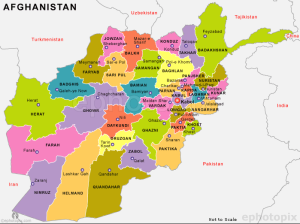 My number one worry is still Syria, but it’s not the only part of the world that needs to concern us all at the moment. Another is the province of Kunduz in northern Afghanistan. The Taliban is resurgent there, and the people are suffering even more than usual as a result.
My number one worry is still Syria, but it’s not the only part of the world that needs to concern us all at the moment. Another is the province of Kunduz in northern Afghanistan. The Taliban is resurgent there, and the people are suffering even more than usual as a result.
On 6 October 2013 there was a ceremony at the international military base in Kunduz. It marked the formal hand over from the German military (Bundeswehr) to the Afghan security forces. By the end of that month, all the approximately 900 German soldiers there had gone. At the time Spiegal International reported , “The security situation in Kunduz remains tense and has worsened again in recent months.” It already looked like this region would be disputed, and that has indeed been the case. Traditionally, northern Afghanistan was the safer part of the country, which is why the less experienced German army was delegated to the area, but it was also where Germany lost most of their soldiers killed in Afghanistan.
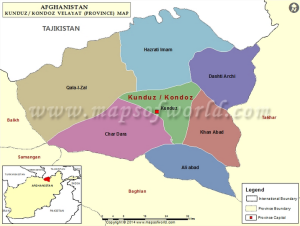 Kunduz came to international notice again recently because it was there that the Médecins Sans Frontières (Doctors Without Borders) trauma centre was bombed by the United States military. According to Médecins Sans Frontières, on 3 October 2015 “Twelve staff members and at least 10 patients, including three children, were killed; 37 people were injured including 19 staff members.” They are calling “… for a full, transparent, and independent investigation into …” the event.
Kunduz came to international notice again recently because it was there that the Médecins Sans Frontières (Doctors Without Borders) trauma centre was bombed by the United States military. According to Médecins Sans Frontières, on 3 October 2015 “Twelve staff members and at least 10 patients, including three children, were killed; 37 people were injured including 19 staff members.” They are calling “… for a full, transparent, and independent investigation into …” the event.
In a speech entitled Enough. Even War has Rules, MSF international president Dr Joanne Liu said:
“Today we pay tribute to those who died in this abhorrent attack. And we pay tribute to those MSF staff who, while watching their colleagues die and with their hospital still on fire, carried on treating the wounded.
This was not just an attack on our hospital – it was an attack on the Geneva Conventions. This cannot be tolerated. These Conventions govern the rules of war and were established to protect civilians in conflicts – including patients, medical workers and facilities. They bring some humanity into what is otherwise an inhumane situation.”
“We are seeking an investigation into the Kunduz attack by the International Humanitarian Fact-Finding Commission. This Commission was established in the Additional Protocols of the Geneva Conventions and is the only permanent body set up specifically to investigate violations of international humanitarian law.”
Just hours ago, the Pentagon, which has made no airstrikes in Kunduz since the destruction of the trauma centre, has announced it will make condolence payments to the victims of the strike. That, coupled with President Obama’s apology is a step in the right direction. According to Reuters via Yahoo News:
Wounded Afghan boys, who survived a U.S. air strike on a Medecins Sans Frontieres (MSF) hospital in Kunduz, receive treatment at the Emergency Hospital in Kabul October 8, 2015. REUTERS/Mohammad Ismail
The U.S. Department of Defense will seek to make “condolence payments” to families of victims of a U.S. air strike that mistakenly hit a Medecins Sans Frontieres hospital in Kunduz, Afghanistan, killing 22 people, the Pentagon said on Saturday.
“The Department of Defense believes it is important to address the consequences of the tragic incident at the Doctors Without Borders hospital in Kunduz, Afghanistan,” spokesman Peter Cook said in a statement, adding the United States would also pay to repair the charity hospital.
“U.S. Forces-Afghanistan has the authority to make condolence payments and payments toward repair of the hospital. USFOR-A will work with those affected to determine appropriate payments. If necessary and appropriate, the administration will seek additional authority from the Congress,” he said.
This attack on the MSF trauma centre is an appalling tragedy that should never have happened, and we’re all naturally shocked and disgusted by these deaths. However, we need to remember that according to the Watson Institute at Brown University, by January 2015 of the approximately 92,000 who have died in Afghanistan since the war began, more than 26,000 were civilians. Another 100,00 were injured. These deaths and injuries are just as tragic as those at the MSF trauma centre.
In addition, the United Nations Commissioner for Human Rights (UNHCR) has reported a new high in civilian casualties in the first six months of 2015: 1,592 deaths and 3,329 injured. They say, “The vast majority – or 90 per cent – of civilian casualties resulted from ground engagements, improvised explosive devices, complex and suicide attacks and targeted killings …” They break down responsibility for the casualties as follows:
Anti-Government Elements continued to cause the most harm despite a slight reduction in total civilian casualties. The report attributes 70 per cent of civilian casualties to their activities.
Civilian deaths and injuries caused by Pro-Government Forces caused 16 per cent of civilian casualties (15 per cent from Afghan National Security Forces and Pro-Government Militia and one per cent from International Military Forces). The report notes with concern that this is a 60 per cent increase compared to the same period in 2014, mostly due to increased civilian casualties caused by Pro-Government Forces during ground engagements.
Fighting between the parties to the conflict that could not be attributed to one specific party caused 10 per cent of civilian casualties while unattributed explosive remnants of war [i.e. mines] caused the remaining four per cent.
The reason international forces are fighting in Kunduz in particular is the resurgence of the Taliban in the region. On 28 September the Taliban attacked and took control of the capital of Kunduz province, also called Kunduz, a city of over 300,000 and the fifth largest in Afghanistan. This is the first time the Taliban has been in control of a major city since 2001. The fighting in the region, and especially some of the tactics used, are the reason the civilian casualties are so high.
The Taliban attacked the city on three sides – the west, north, and east. In the days before the attack it’s estimated 500 Taliban fighters entered the city surreptitiously and insinuated themselves in the population. In addition, many locals decided to join them once the battle started. The Afghan government has since retaken the centre of the city from the south, where the airport is located. Both sides are using local homes and businesses as cover.
The Taliban has not been strong in the north since they lost control there in the early days of the war. Mostly, they have been active in the south, but their influence is spreading again thanks to the failure of central government. They are now apparently threatening another major city, Maymana, capital of the northwestern province of Faryab. The Wall Street Journal reports that they have taken control of two districts in northeastern province of Badakhshan too.
Former president Ahmed Karzai was well known for his unreliability among both his own people and his allies, as well as his own and his government’s massive corruption. Virtually all officials were corrupt and bribes were routine. With the election of Ashraf Ghani in September last year, people were hoping for an improvement, but this is simply not happening quickly enough.
Ghani, a former World Bank official, began in Kunduz by removing most of the current officials. However, when the Taliban looked like they might take control of the city six months ago, the government allied itself with local militias – a tactic that has now backfired.
Afghanistan ranks 172 out of 175 in the Global Corruption Index for 2014 with a score of 12/100. Believe it or not, that’s actually an improvement: in both 2012 and 2013 their score was only 8/100. The government isn’t trusted, so although the people have no desire for the religious extremist (Sunni Islamist) government imposed by the Taliban, they recognize that at least they generally stick to the law they apply. For this reason there are examples of moderate Sunnis and even Shi’a cooperating with them. Corruption is still too big a part of the official government and brutal and draconian as Taliban rule is, apparently it is also fair. Take this account from the Wall Street Journal:
When Mohammad Akbar’s family found itself in a dispute over a tract of land in the Kunduz countryside last month, he turned to the Taliban for justice. A local Taliban judge never solicited a bribe and settled the squabble in just a few days—in contrast, Mr. Akbar said, to the slow, often corrupt, state-run courts.
Mr. Akbar, a fluent English speaker and member of the Shiite Hazara minority, fled to Kabul to escape recent violence in the northern Afghan province. He doesn’t yearn for the return of harsh Taliban rule to the country, he said, but like other residents of Kunduz he has little regard for the provincial or federal government. “People are fed up with paying bribes,” he said.
Thousands of locals fled the city during the attack and are now internal refugees, adding to the 948,000 the United Nations High Commissioner for Refugees (UNHCR) had already profiled as internally displaced due to the conflict at the end of August 2015. The Waslat website says 2,000 passports are being issued every day to Afghans wanting to leave the country, many of them the very people the country needs if it’s to succeed. In addition, in 2013 and 2014 combined, 67,585 Afghans sought asylum in the EU, second only to Syria. (See here.)
General John Campbell, who has been the Afghanistan Operations Commander for the last fourteen months testified before the Senate Armed Services Committee on 6 October. While he was optimistic about the continued improvements to be seen in the Afghan security forces, he considered they were not yet ready to go it alone. He said, “The difference between the Ghani administration and the previous administration is like night and day.” The Ghani administration, he said, was much more appreciative of the coalition’s role in supporting his government, and has asked for help to be extended by delaying plans to remove troops by the end of 2016. General Campbell’s recommendation was that the US should accede to president Ghani’s request. He says he has given a range of options to president Obama via the chain of command, and laid out the pros and cons of each.
His reasoning for extending the deployment is that circumstances have changed since the plan to leave except for an embassy presence was made in 2014:
- a genuine effort to address corruption is being made in the government;
- the Al-Qaeda presence has grown;
- DAESH has infiltrated the west of the country;
- there is clear progress in the ability and professionalism of the Afghan army;
Afghanistan is clearly at a decisive point militarily and allied support could make all the difference to the future of the country. As reported by Stars and Stripes on 9 October:
Even if the government ultimately prevails throughout the city and its environs, the political and military damage to the Afghan government by last month’s rout in Kunduz has been enormous, shaking public confidence.
As such, the country is at a critical juncture. I never thought I’d say this, but I support the proposal for the US military to delay leaving Afghanistan. The Afghans have made enormous progress since the election of president Ghani and the country now has a future. I’d like to see them get the opportunity to realise it.
When I was looking for maps of Kunduz, I came across this picture. It has absolutely nothing to do with my post, but it’s such a cool picture, I had to include it. It’s from Flickr, and was posted by russell_s. It had no caption except “Kunduz, Afghanistan.”

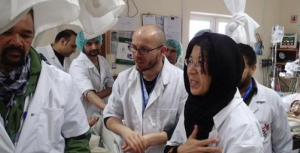
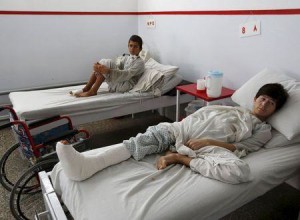
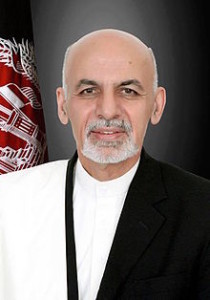
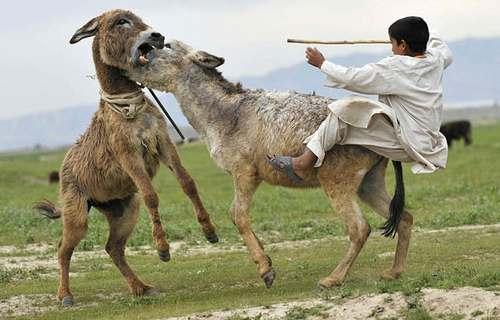
I am surprised you wrote a whole article on Kunduz, and didn’t mention the Dasht-i-Leili massacre of between 200-2000 members of the Taliban.
I wonder if the reaction would have been the same if the attack had been carried out by the Israelis on a hospital in Gaza. As many people have mentioned, the usual apologist argument would have been that “it was their fault, they were using the hospital to fire on us”, and when the hospital staff would have denied this, no one would have believed them, because Muslims aren’t to be trusted. However, in this instance, because they were members of a Western organisation, this argument cannot be used, and so we had to admit our mistake.
As for your figures on how many civilians have been killed by our side (which includes the Afghan forces fighting the Taliban), how can anyone possibly take these figures seriously? The Obama administration considers any male between the age of 16-60 (or maybe 65) who is travelling with a member of the Taliban or al Qaeda to be a combatant. So you can have rhe situation where someone who is a brother of a commander of the Taliban, but not actually a member of the Taliban, being killed in an airstrike, and according to the Obama administration, this guy wasn’t a civilian casualty.
Furthermore, we don’t even seem to know who we are killing half the time. There have been a number of incidents where a Westerner has been killed in an airstrike by us – if we don’t even know that a Westerner was there at the time of the attack, how the hell can we possibly claim to know who the non-Westerners were that we killed?
But, hey, don’t let any of this get in the way, Bill Maher tells us Obama is a good guy.
Actually I have to admit, I didn’t know about that massacre.
I don’t know what the story behind the hospital bombing. The Americans clearly got it wrong and have admitted it, which is a good thing. Personally, I don’t have the opinion that Muslims can’t be trusted. I do have the opinion that terrorists, whatever their religious or political affiliation, can’t be trusted, but their word doesn’t seem to be relevant in this situation. The fault lies squarely with the Americans. General Campbell admitted as much at the Senate hearing (I watch his testimony – it’s available on C-Span). Senator McCain was trying to give General Campbell “outs” to blame the Afghans etc, but he refused to take them. He seemed to me to be an honourable man.
I took the figures from independent sources. I cannot vouch for their accuracy, and indeed did not. All I can do is use my judgment to use what I think are the best sources. Of course, everyone should use their own judgment, knowledge, and experience when assessing anything they read – I never claimed to be an authority.
Like you, I make my own decisions about people. I don’t decide who I like and don’t like based on what others say. I have both praised and criticized Obama over the months depending on the situation. I’d sure as hell rather have him in charge of US foreign policy than any of the Republican candidates on offer. That doesn’t mean I think he always makes the correct decision. Of course, just because you or I or anybody else thinks he’s wrong doesn’t mean he is either.
Then perhaps other nations could join the US? A very naive question, I’m sure; though progress would seem to be in the interests of much of the world, and unilateral US actions are viewed (often correctly) as suspect.
(I should have said all this in the post, and realized last night as I fell asleep in front of the TV that I hadn’t!)
The mission in Afghanistan is UN approved – see UN Security Council Resolution 1386. Lots of other nations used to be there, including NZ, but they’ve left. NZ was one of the nations doing a lot of the training, but our army is so small, there’s a limit to what they can do. They’re committed to a lot of UN peacekeeping missions around the world, and have just started training the Iraqi army at their request, along with several other countries.
The US has about 14,000 people still in Afghanistan, 9,800 of whom are combat troops. Because of how well the training has gone over the last few years, the US doesn’t need to increase numbers this time like in the surge – current levels are enough, so other countries don’t need to go back. The Afghan troops just need more time. General Campbell has stated that in some areas their performance has been excellent, but in others they still have a lot to learn thus their performance is patchy. So this wouldn’t be some unilateral action, and it’s also at the request of the Afghan government, so Security Council permission wouldn’t be needed.
This is isn’t like so many of the US’s past actions, which I should have made clear in the post.
Another important map:
https://upload.wikimedia.org/wikipedia/commons/thumb/b/bb/US_Army_ethnolinguistic_map_of_Afghanistan_–_circa_2001-09.jpg/405px-US_Army_ethnolinguistic_map_of_Afghanistan_–_circa_2001-09.jpg
Good essay Heather. I’m very reluctant to support any continuation of a war that’s been going on for 13 years with minimal success. I hope you are right that the new government is fighting corruption and the Afghan army is getting stronger, but we’ve heard this kind of talk before. The resurgence of the Taliban is not a good sign. No outsider has ever been able to control Afghanistan (maybe the Mongols) and the prospect of our doing it isn’t good.
Although Afghanistan has a significant, and much oppressed, Shia minority, the Hazara, the main divisions in the country are ethno linguistic, rather than religious. (See map from my previous comment) The largest and dominant group are the Pashtun, from which the Taliban gets most of its support. Ghani and Karzai are also Pashtun. The Pashtuns dominate in the south of the country. The Northern Alliance was composed predominately of Tajiks, Harraras, Uzbeks and other ethnic groups.
As in other areas of the region, the mix between ethnicity and religion in the conflicts is complex. The Kurds are Sunni, but are fighting alongside Iraqi Shia against ISIL and related Sunni extremist groups. As in the two world wars, fought largely between Christian nations, religion is often not the underlying cause of violence, but a rallying cry and justification for acts that have other origins.
I highly recommend Karen Armstrong’s Fields of Blood, for a historical overview of the interactions of religion and other factors in the origins of wars. Economics (or greed) is one of the biggest factors as you might imagine. Although you don’t really discuss it, your map of opium poppy growing areas introduces that important factor in the Afghanistan conundrum.
I looked into the ethnolinguistic divisions when I was writing this, but I confess it’s so complicated I didn’t really want to tackle it. As you say, this is very important in Afghanistan, and actually one of the reasons a secular government is so important. Imo it’s the only way for all the extremely diverse groups to work together effectively.
As for the map of the opium growing – your comment made me realize I’ve put the wrong map into my post! It’s supposed to be a map of Kunduz. I downloaded the map of the opium because I was going to write about that too, but it would have made the post too long and it’s not significant in Kunduz, so I left the topic out. Anyway, I’ll put the map of Kunduz region in now.
The opium growing map was not misplaced. It’s an important factor, as is religion. For religious zealots, like the Taliban, the enemy within is worse than the enemy without. Within the Sunni community there are very diverse and often antagonistic views. All factions, use religion to justify their actions. It’s like the scots, who were constantly at war with each other, when they weren’t at war with the English. Some times a Scottish king could pull the country together, sometimes not. Tribalism, nationalism, religion are much the same. They all rely on their myths to make themselves superior to others. And we’re all susceptible to it.
But what we should never leave out of the equation are the economic interests of the elites. U.S./ world bank funding can buy off some. Opium poppy growing is very important in the Pashtun strongholds. Afghanistan is said to have valuable natural resources. Are corporate investment dollars coming into play?
Afghanistan potentially has HUGE oil reserves. That’s the real reason Russia invaded in the first place – to get their hands on it, and that’s why the US doesn’t want Russia in control there. There has been a lot of investigation, and there are heaps of places that have the right conditions for easily accessible light crude. If Afghanistan could get it together, they could boom. The elites of Russia, Iran, China, and the US have all been trying to be in charge of pipeline building projects, which are all called some variation on “Peace Pipeline”. If Afghanistan was secure from terrorism, the corporates would be in in no time. They don’t need opium to be rich – they can do it legally.
Getting the tribal warlords to cooperate has been problematic and the endemic corruption makes doing business properly all but impossible. The Taliban’s imposition of a theocracy was actually an attempt at a solution to these problems, but it created other problems.
And they always say it isn’t about the oil. The US was happy to deal with the Taliban no matter how terrible their regime was when they were cooperating on a pipeline. They’re only terrorists now because they’re no longer properly aligned. Same old story. Makes it rather difficult to believe the people there won’t simply continue to suffer.
Yeaah – this one was definitely about the oil. Much more so than the Middle East imo. The US were allied with the Taliban when Russia was occupying the country. The CIA trained them and were embedded with them. It’s a different story now.
An excellent novel that touches on this is Ken Follet’s Lie Down With Lions.
It doesn’t just have potential oil reserves, it potentially has a trillion dollars worth of minerals too…
http://www.nbcnews.com/science/science-news/rare-earth-afghanistan-sits-1-trillion-minerals-n196861
Opium is important, but since I wasn’t writing about it, there wasn’t much point having a map about it. The focus was Kunduz, which is poppy free.